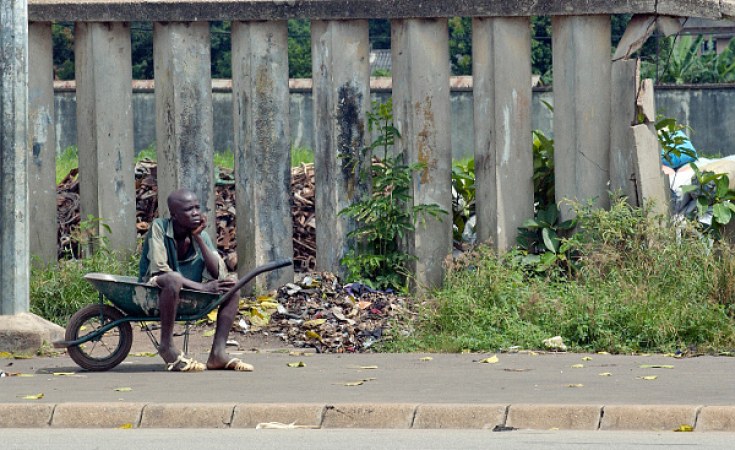President Laurent Gbagbo of Cote d'Ivoire rebuffed an offer by the United States to save face and become a respected elder statesman of Africa, choosing instead a "path to isolation" by clinging to power, according to senior U.S. officials who spoke by telephone to AllAfrica.
President Barack Obama wrote to Gbagbo on Friday night after attempts to reach him by phone were unsuccessful, prior to Gbagbo's ceremony to swear himself in as president. In the letter, Obama, who was on a plane returning from Afghanistan, reiterated that the United States considered Alassane Ouattara the legitimate winner of Cote d'Ivoire's presidential elections, based on the results of the national electoral commission and certification by the United Nations.
"President Obama laid out a clear choice: respect the results of the election and you will have a role to play, and you will have the personal support of President Obama in playing that role," one senior U.S. administration official told allAfrica. "Ignore and override the results of the election and you will be isolated and held accountable, and you will not have the support of the United States."
In the letter, Obama invited Gbagbo to the White House "for discussions … on ways to advance democracy and development in Cote d'Ivoire and West Africa" should Gbagbo step aside.
Other than confirmation of its receipt by Ivorian officials, Gbagbo has not responded to the letter.
Targeted Sanctions
The United States was encouraged by the action of the west African regional bloc Ecowas on Tuesday in calling for Gbagbo to step aside. The Economic Community of West African States also suspended Cote d'Ivoire from the grouping.
"This kind of leadership is extraordinarily laudable, and this is what the United States wants to be working to support," one administration official said . The United States has been working in conjunction with Ecowas, the African Union, the United Nations, France and the European Union in trying to get Gbagbo to respect the electoral outcome.
A number of further measures are being considered to pressure Gbagbo to step aside, and the United States is consulting with the U.N. Security Council. Among possible actions are unilateral and multilateral targeted sanctions, the U.S. officials said, following on the "powerful signal" of Ecowas.
"Certainly we have made clear, and others have made clear, that those who subvert the democratic process will be held accountable," one U.S. official said. "That points to looking at targeted measures that seek to isolate individuals responsible for an undemocratic seizure of power and also, critically, for any kind of instigation of violence."
Worrisome Trend
Former South African president Thabo Mbeki visited Cote d'Ivoire earlier this week, as an envoy of the African Union, to try to mediate an end to the crisis. Critics of Mbeki, who in the past has been seen by some as close to Gbagbo, feared Mbeki would try to broker a power-sharing deal.
In an apparent reference to post-election power sharing agreements following elections in Kenya and Zimbabwe, where incumbents refused to accept defeat, one U.S. administration official made it clear that the United States wanted Gbagbo to step aside rather than be accommodated.
"There have been some worrisome trends over time - this government of national unity trend - where you … accommodate the interests of a political rival," the official said. "But the interests of the people who expressed their voice democratically and are interested in holding leaders accountable sort of get lost in the shuffle."
U.S. officials said they had no immediate knowledge of the content or outcome of Mbeki's talks in Cote d'Ivoire.
Rival Governments
On Tuesday, the United Nations, which has more than 9,000 peacekeepers in Cote d'Ivoire, began evacuating non-essential staff from the nation for fear of unrest. Sporadic violence has broken out in the main city, Abidjan, since the Constitutional Council overturned results announced by the electoral commission that said Ouattara won the November 28 run-off poll with 54 percent of the vote.
Cote d'Ivoire is still largely divided between the north and the south despite a peace deal in 2005 that ended a brief civil war. The nation now has two governments – one led by Gbagbo and the other by Ouattara, whose prime minister was the former leader of the northern-based New Forces rebels.
In his letter, Obama reminded Gbagbo that he was once an opposition figure who was calling for free and fair democratic elections. He came to power following polls in 2000 that were annulled by the nation's military ruler, Robert Guei. Guei was chased from power in a popular uprising in Abidjan where Gbagbo draws much of his support.
Respectable Departure
In a statement on Tuesday, Democratic U.S. Congressman Donald Payne, chairman of the subcommittee on Africa and Global Health, commended Gbagbo for serving Cote d'Ivoire over the past decade, including through a failed coup attempt in 2002.
"Despite the seemingly insurmountable challenges that have faced his country, and the criticism he has often received from the West, he managed to prevent Côte d'Ivoire from plunging into a violent civil war," Payne said.
He encouraged Gbagbo "in the manner befitting of a statesman" to peacefully transfer power to Ouattara.
"The Ivorian people have seen their country descend from great heights – from the economic engine of West Africa that it once was, to a nation torn in two," Payne said. "Let the electoral expression of the Ivorian people's will be a clarion call for all parties to finally put aside their differences and lay aside blame for the sake of Cote d'Ivoire's future – a future that all Ivorians will share. It is absolutely critical at this juncture that the rule of law, suspension of violence, and the will of the people be upheld to prevent a major crisis. "


